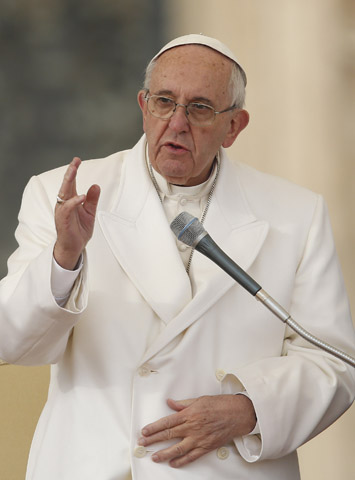Pope Francis' Jubilee Year of Hope represents a monumental moment in the global Catholic calendar, inviting believers and non-believers alike to reflect on themes of unity, faith, and renewal. As the world continues to grapple with profound challenges such as geopolitical tensions, public health crises, and environmental degradation, this Holy Year serves as a powerful call for collective introspection and action. It is an opportunity to embrace hope as a guiding force, fostering compassion, solidarity, and spiritual awakening across diverse communities worldwide.
Instituted by Pope Francis, the Jubilee Year of Hope from December 2024 to December 2025 aims to inspire individuals to embark on personal and communal journeys of transformation. This period encourages people to reconnect with their inner selves, deepen their faith, and extend a helping hand to those in need. By designating this time as one of pilgrimage, prayer, and penance, the Vatican seeks not only to rejuvenate spiritual lives but also to promote peace, justice, and reconciliation globally. The message resonates deeply in today's interconnected yet fragmented world, urging all to become Pilgrims of Hope.
Year of Renewal: A Time for Spiritual Awakening
The 2025 Jubilee Year of Hope, proclaimed by Pope Francis, marks a significant milestone in the Catholic Church’s tradition of jubilees. Rooted in biblical teachings, jubilees have historically symbolized liberation, restoration, and grace. For the Archdiocese of San Francisco, this occasion invites faithful members to recommit themselves to living as Pilgrims of Hope. Archbishop Salvatore J. Cordileone has echoed Pope Francis’ vision, emphasizing the importance of using this sacred year to foster deeper connections with God and humanity. Through parish pilgrimages, educational resources, and local events, the Archdiocese aims to create meaningful experiences that nurture spiritual growth.
This jubilee extends beyond individual parishes, encouraging Catholics worldwide to participate in activities centered around faith and service. From organizing pilgrimages to Rome to engaging in acts of charity within local communities, the Church hopes to ignite a renewed sense of purpose among its followers. By dedicating themselves to these practices, participants can experience firsthand the transformative power of hope during this extraordinary year. Furthermore, the emphasis on inclusivity ensures that everyone, regardless of background or circumstance, can partake in this holy celebration.
Ultimately, the Jubilee Year of Hope offers an invaluable chance for reflection and renewal. As believers journey through this special time, they are called upon to embrace change, challenge injustices, and build bridges between cultures and nations. This collective effort aligns perfectly with the broader mission of the Catholic Church—to spread love, mercy, and understanding throughout the world.
A Global Invitation to Embrace Hope
Pope Francis' announcement of the 2025 Jubilee Year underscores his commitment to addressing contemporary issues affecting humanity. In a letter addressed to the global community, he highlights how this jubilee will serve as a beacon of light amidst ongoing struggles like war, pandemics, and climate change. By adopting the theme Pilgrims of Hope, the Holy Father emphasizes the necessity of maintaining optimism even when faced with adversity. His message calls for active participation in creating a better future for all.
To facilitate this process, Pope Francis encourages dioceses worldwide to organize pilgrimages to significant religious sites, including St. Peter’s Basilica in Vatican City. These journeys provide opportunities for spiritual enrichment while reinforcing bonds among participants. Additionally, the official launch date set for December 25, 2024, coincides with Christmas—a season traditionally associated with joy, peace, and goodwill. Such timing enhances the jubilee’s potential impact by amplifying messages of hope and redemption.
The conclusion of the jubilee on January 6, 2026, during the Feast of Epiphany, further solidifies its symbolic significance. This final event signifies the culmination of efforts made throughout the year to strengthen faith, promote unity, and instill lasting hope in hearts everywhere. Through careful planning and execution, the Vatican strives to ensure that every aspect of the jubilee contributes positively toward achieving its ultimate goals.
Historical Significance and Modern Relevance
Tracing back to the first Christian jubilee established by Pope Boniface VIII in 1300, these periodic celebrations hold immense historical value for the Catholic Church. Over centuries, jubilees have evolved into occasions where believers seek absolution, celebrate divine blessings, and renew commitments to their faith. With the upcoming 2025 jubilee, Pope Francis builds upon this rich heritage while adapting it to meet current needs and aspirations.
As outlined in Wikipedia's entry on the 2025 Jubilee, this event was initially announced by Pope John Paul II at the close of the Great Jubilee in 2000. Its preparation involves extensive collaboration among various church entities, ensuring comprehensive coverage of essential elements such as liturgical rites, catechetical programs, and outreach initiatives. Moreover, technological advancements enable wider accessibility to jubilee-related content via digital platforms, making participation more feasible than ever before.
By integrating traditional customs with innovative approaches, the 2025 Jubilee aims to engage both longstanding adherents and newcomers alike. This dual focus reflects the Church’s dedication to preserving core values while embracing progress—an approach vital for sustaining relevance in an ever-changing world. Thus, the jubilee stands testament to the enduring legacy of hope that continues to guide the Catholic Church forward.

